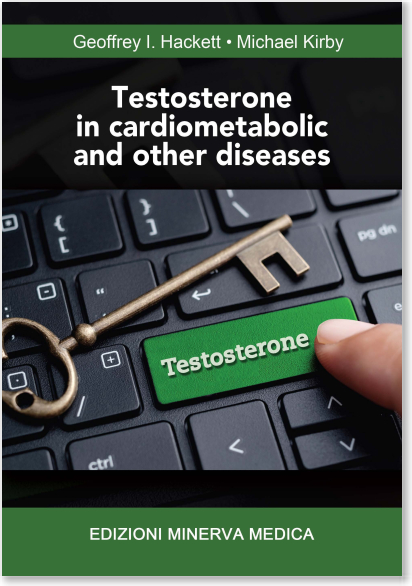Testosterone in Cardiometabolic & Other Diseases
| Ò | : G.I.Hackett & M.Kirby |
|---|---|
| oÅÐ | : MINERVA MEDICA |
| ISBN | : 978-88-5532-113-6 |
| y[W | : 260pp. |
| oÅN | : 2022N |
ÝÉ
è¿10,890~({Ì9,900~ { Å)
- ¤ià¾

This book is very timely as several recent studies have demonstrated the important role of testosterone in the development of type 2 diabetes and metabolic syndrome. Testosterone is a highly controversial but vitally important hormone in menfs health. The traditional approach has been to classify low testosterone, or hypogonadism as either primary, due to disorders of the testes and therefore gclassicalh and meriting testosterone therapy, or secondary, where treatment may be indicated when due to structural pituitary or hypothalamic disorders. These include so-called functional causes, such as obesity, diabetes and medications where management through lifestyle change might be considered appropriate. The problem with this approach is that lifestyle changes are often either ineffective or of short-term benefit. These functional cases suffer just as readily in terms of new onset diabetes, sexual dysfunction, depression, cognitive disorders and most importantly increased mortality. The authors discuss in detail the role of testosterone and other therapeutic approaches to these problems as demonstrated by recent studies, such as T4DM, the T trials and BLAST, along with the possible impact of the long-awaited TRAVERSE study. The recent Covid-19 pandemic has caused increased mortality in men associated with profound and acute falls in testosterone that are closely linked with adverse outcomes across multiple medical disciplines. The reality is that Covid-19 is now probably the major cause of hypogonadism, with acute and long-term implications. The authors have assembled a team of international experts in andrology to address highly controversial issues in the chapters that follow.

![®ïÐ ì]° / NANKODO](/img/usr/common/logo.gif)


